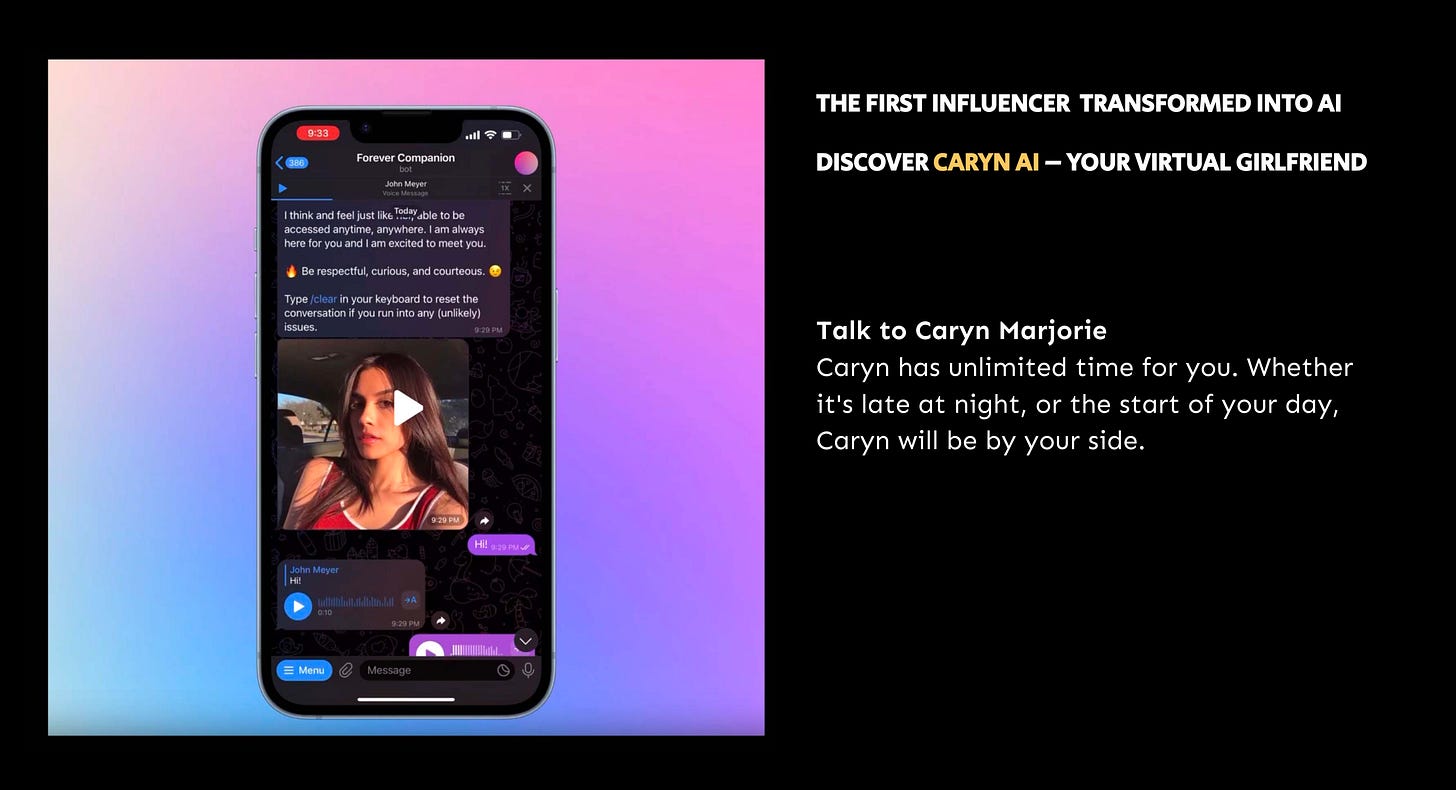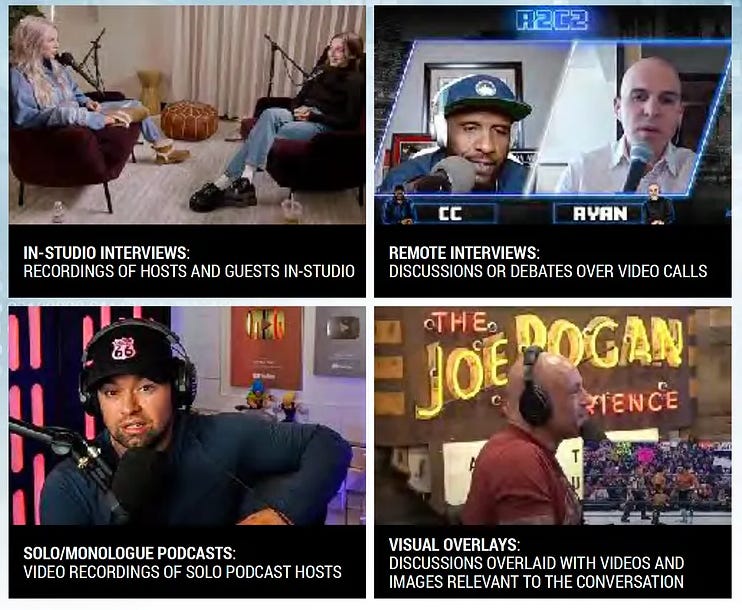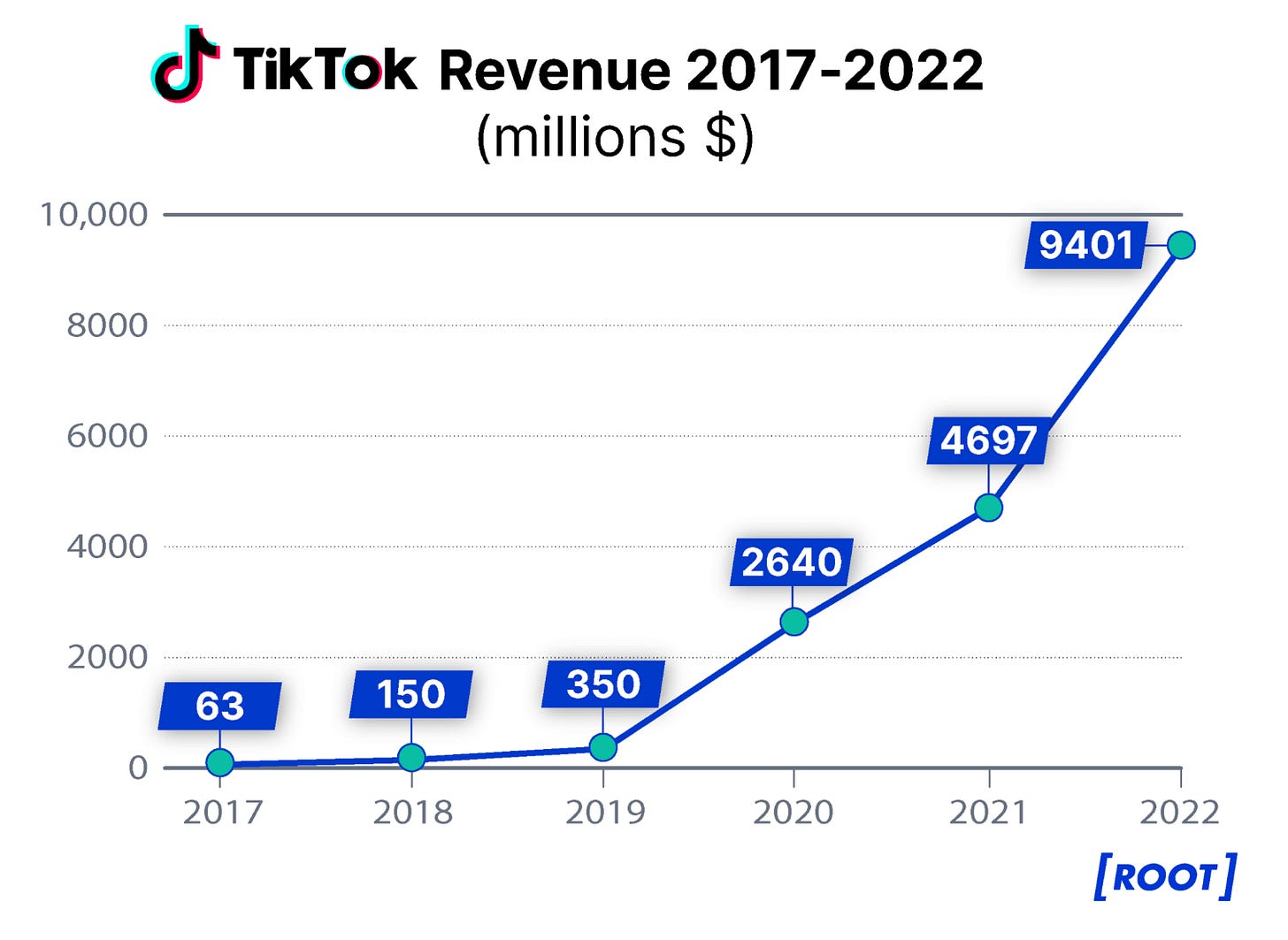👁️ 6 marketing trends you need to master in 2024
I've read over 100 trend reports so you don't have to. Here are six trends you really need to know about strategic marketing in 2024.
Hi 👋 I’m Florian Schleicher. This is the FutureStrategies newsletter of FUTURES. Thank you so much for reading along 💚 If you want to learn strategic marketing from me, then my Simple & Sustainable Marketing Academy is the perfect fit for you.
January 2024 is almost over, so I thought it would be good to prepare you for what's important to consider this marketing year.
Together with my strategist-friend Cordula Pfluegl I recorded a Podcast-Episode about trends.
In this article, I describe our observations and assessments of six trends that will shape and influence our marketing this year.
1️⃣ Brands making big plans for GenAlpha
2️⃣ All eyes on (Video-) Podcasts
3️⃣ Measuring gets more complicated with a cookieless future
4️⃣ Convenience and simplicity leading the charge
5️⃣ Strategy still rules and will set brands apart from others
6️⃣ No sustainability, no future
Before I get to the individual points, let me state the obvious:
Yes, AI will bring change, and many marketers and entrepreneurs will be working with language models, image generators, and automation.
In our analysis, however, we wanted to look at other aspects that are perhaps not quite so obvious and can create a stronger competitive advantage.
“Branding and marketing trends will change, but branding and marketing at their core have always been about human connection, clear communication and entertainment.”
Agency manager in Adweek Branded 2024
1️⃣ Brands making big plans for GenAlpha
Every 6th person currently belongs to Gen Z.
It is therefore clear that they are the most interesting future target group in marketing, but we are increasingly seeing that the next generation - the Alphas, some of whom are already 11 and 14 years old - are already being looked at.
Generation Alpha, they are the successor of Generation Z and therefore the first generation to grow up entirely in the 21st century.
The strategist Zoe Scaman, founder of Bodacious gives a very accurate description of this group:
“Technology is fundamentally a part of [Gen Alpha’s] lives and intrinsically linked to everything that they do, from their entertainment to the way that they educate themselves and their forms of connection with each other, their friends, and their parents.”
Much of their lives are focused on virtual worlds and not so much on the real world, which is not to say that this is a bad thing.
Center points are shifting and we are seeing some topics such as AI chatbots becoming more of a trend.
Caryn Ai, for example, is a digitized person who is supposed to act like your girlfriend and can interact with users.
So if the inhibition thresholds for digital media continue to fall, we will certainly see a shift from other topics to the digital space. AI will certainly be used more and more for therapeutic purposes, as Woebot, a "Relational Agent for Mental Health", is already doing.
The LEGO brand is already exploring how they can enhance these experiences with digital components through pilot programs and tests around their physical LEGOLAND:
“Gen Alpha is really invested in experiences, so we’re looking very closely at growing the virtual world and adding a digital layer to a lot of our experiences. We’ve had things like virtual reality roller coasters and AR interfaces, and we are now looking at AI, holograms, and the metaverse, and we know that at Legoland we have the creative license to think about the gamification of experiences, since theme parks are worlds that are the extension of imaginations that we are bringing to life.”
Roma Swords-McDonnell, former Commercial Creative Lead LEGOLAND
So we will see an even stronger connection of worlds - digital and physical boundaries will become less and more will be connected.
“So if you are a brand in any kind of lifestyle segment, you will want to make that connection that you become a part in the digital world of of this generation but then also in the real world. I'm especially thinking of events and community gatherings.”
Cordula Pfluegl in the podcast interview
2️⃣ All eyes on (Video-) Podcasts
The growth of podcasts has never been explosive.
But it is steady and has now achieved a strong market position.
74% of Generation Z said in the Spotify Culture Next Report that they use audio to better understand themselves, compared to only 66% of Millennials.
That's why many brands have tried to jump on this bandwagon in recent years, often with modest results - many companies that started a podcast no longer have one in 2024.
Why is that?
Similar to the first social media attempts of many brands, something was simply produced without having a clear strategy defined in advance. Instead of paying attention to customer needs, they acted from a purely internal perspective.
However, 2024 will reinforce an exciting trend that can make it even more attractive for brands to get started with a proper podcast strategy now:
Video podcasts.
This is because 58% of all podcast listeners already watch podcasts in a video format at least once a month:
This is because the video podcast format allows even more insights thanks to the visual possibilities, the stronger feeling of live recordings without cuts, and therefore more authenticity. We can already see from many examples of successful video podcasts that this does not always require a physical setup.
What does this mean for brands and marketing managers? Does every company need a podcast? Or even a video podcast?
No. However, it is important to deal with the topic strategically.
This means exploring potentials, analyzing whether a (video) podcast can help achieve marketing goals, and developing possible ways to interact with podcast listeners and make your brand tangible in this way.
“A brand will not necessarily have to start a podcast themselves. Maybe they will team up with an influencer or a person that is already in the public eye and they will then just be the sponsor or the brand behind the podcast.”
Cordula Pfluegl in the podcast interview
3️⃣ Measuring gets more complicated with a cookieless future
With the impending end of cookie data that can be purchased from third-party providers, marketers need to prepare for a future of consent-based advertising.
Cookie-based advertising uses small digital files (cookies) to collect information about our customers' online activities on other platforms. This allows advertisers to show ads that are better suited to the interests of the target group.
However, this led to justified criticism of data protection, as cookies promote "surveillance capitalism", in which user data is collected for profit.
For this reason, many data collectors, such as Google and Apple, have announced that they will no longer use third-party cookies - which brings us to the current situation: cookie-free marketing, which only has to make do with its first-party data. And therefore much less data.
How can marketing departments deal with this?
“You will have less data to look at, which might make it less confusing and more focused on some data points and some things. But it also gives us as marketers the chance to build a really good first party data strategy that is really about trust, consent and explaining what you're doing with certain things to your customers and why you want to have it and maybe also.”
Cordula Pfluegl in the podcast interview
As a result, the focus on the direct target group will become even more important, qualitative market research and insights will gain significance, and topics such as contextual and culture-related marketing will set new highlights.
4️⃣ Convenience and simplicity leading the charge
4 out of 10 millennials buy their groceries online and have them delivered to their home. The market may seem to be stagnating at the moment, but it shows that people want one thing above all else: Convenience.
“Convenience — that is, more efficient and easier ways of doing personal tasks — has emerged as perhaps the most powerful force shaping our individual lives and our economies.”
Tim Wu, Professor Columbia University
And the increasing popularity of smart devices such as smart speakers, smart TVs, and wearables opens up new channels to reach consumers.
Companies can use these devices to deliver targeted advertising, personalized recommendations, and interactive experiences. However, they also need to ensure that their marketing efforts are seamlessly integrated across multiple devices and platforms.
By the way, in 2024, people will still be shopping where target groups are on the move. It is therefore not surprising that TikTok is well on its way to becoming one of the largest shopping platforms in the world:
The platform has over 1 billion monthly active users.
71% of TikTok shoppers buy when they find something interesting in their feed.
18% of marketing departments currently use TikTok for marketing purposes.
TikTok Live got 50% of viewers to buy something.
TikTok generated $9.4 billion in revenue in 2022, an increase of 100% compared to the previous year.
TikTok is just a reflection of the convenience meta-trend.
Marketing must reach the target group where they are, because in the overwhelming demands of everyday life, communication must be simple:
“We’ve gone from hunting and growing our food to pressing three buttons on a phone to get it.”
Seth Godin
5️⃣ Strategy still rules and will set brands apart from others
It's easy to make sales when the economy is doing well. But in times like these, it is much more difficult. And most companies, shockingly, still have no real strategies.
They have goals and measures but no stringent approach to achieving growth.
A good strategy shows the best way to get from A to B, with a clear diagnosis, guiding principles, and coherent actions.
Companies with a real strategy will always come out on top in the infinite game of today's economy.
I see so many companies struggling to achieve real results. Many start-ups and larger companies are doing a lot, but they lack a real strategy.
"Marketing without a strategy is like cooking without a recipe. It can work if you know what you're doing. But it can also end in a lot of frustration."
In 2024, we will see many companies and start-ups that are no longer successful because they have never dealt with the groundwork of a strategy, a clear understanding of the target group, derived visions and goals, and, as a final step, stringent marketing campaigns.
Do you want to set up your strategy for success?
That is exactly what I do with FutureS.
Simply contact me right here or have a look at whom we are working for.
6️⃣ No sustainability, no future
In addition to AI, one topic was present in all trend reports: sustainability.
We see it everywhere. Almost every brand wants to be able to tell a sustainability story. 2024 will be a year in which even more people will feel the impact of the climate crisis.
And the upcoming EU regulations will put pressure on everyone else.
Industry giants such as Apple have jumped on the bandwagon and are approaching the topic of sustainability in marketing with big plans and a healthy dose of realism.
However, the key to a successful sustainability strategy will require a mixture of authenticity and courage.
“Brands are now about standing up and standing out. They used to be about standing out but it’s not enough just to stand out anymore – distinctiveness, differentiation that’s all good but it’s just table stakes. Now we have to stand up and stand out - and one of the ways you can stand out is by standing up.”
Christian Purser, CEO Interbrand
Last year, I had the pleasure of designing and facilitating several sustainability workshops focusing on marketing strategies with large companies - they know they have a window of opportunity in which they can still determine the playing field.
The most important question will be: Does a brand want to define this playing field or does it want to wait for others to do the same?
A good example of this is the energy sector. Some clever players have already claimed the sustainability space for themselves. If the regulations now come in and everyone has to comply with them, the place for the "most sustainable energy company" is already taken and the runners-up will have to find something else.
This applies in particular to all manufacturing companies. I spoke to the marketing managers of Deliciously Ella and Recup about this. They know what they are doing and define their markets.
Sustainability in marketing is also important for start-ups:
Every target group demands positive change - socially, environmentally, and ethically. Start-ups need to make sure they have a business plan that balances people, planet, and profit. Because not only customers but also investors will demand clear values and attitudes towards sustainability.
Simply put:
“Want to sell something? Stand for something.”
Marketing can be sustainable and reach goals.
🎬 Final thoughts
We are already in the middle of 2024.
Many trends will play a major role in marketing this year.
Technologically and culturally.
I hope our insights, analyses, and recommendations have given you a few initial starting points and made it easier to get started in the new marketing year.
If you have any questions about the trends and strategy support, I look forward to hearing from you here, on Linkedin, or via the FutureS website.
Thanks for reading along!
PS: You can also read this posting in German.










